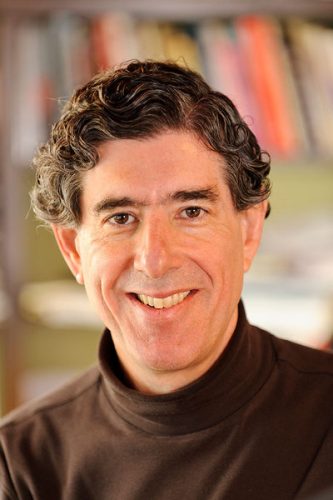
In 1992, two neuroscientists, Richard Davidson and Clifford Saron, trekked into the hills around Dharamsala in north India to measure the brain waves of Tibetan Buddhist monks. Although the journey did not yield empirical data, it was a turning point in the careers of both men, and they went on to become leaders in the science of meditation.
On Feb. 9, they will be guest speakers at the Second Annual Symposium for Mindfulness and Society at the University of Oregon. Davidson, a professor of psychology at the University of Wisconsin-Madison, and Saron, a research scientist at University of California-Davis, will share the latest results from their respective research projects.
Davidson, author of the best selling book The Emotional Life of Your Brain, uses the methods of neuroscience in his research to distinguish different emotional styles and to illustrate a path towards a healthier, more meaningful life.
“The core focus [of the talk] will be that well-being is a skill and it can be cultivated,” Davidson tells EW. “I’ll illustrate how we can transform these emotional styles into well-being.”
Saron helps lead the Shamatha Project, a large-scale, long-term study of the effects of meditation on the brain. “People are experiencing a lot of psychological stress without relief,” Saron says. “It’s not that meditation is so special; it’s like it’s permission to do something natural.” Saron has pinpointed some of the empirical effects of meditation on the brain and, though he says the results are probabilistic like any study, the data shows clear trends.
Cris Niell, co-organizer of the event and professor of biology at the UO, says that the university is not known for meditation research, though that is beginning to change. “A lot of it is driven by students instead of faculty,” he says. As the scientific evidence gathers for the benefits of meditation, Niell says, more people are beginning to take meditation seriously as a way to combat the stress of modern life. “There’s a lot more need for it now,” he says. “It’s not something you have to do for mystical reasons.”
For a long time, the tradition of science was considered to be separate from ancient contemplative practices, but Davidson says that the latest research is beginning to change that. “We are now living in a unique time where these traditions are complementing each other,” Davidson says.
Saron’s lecture, “Minding Mindfulness: Findings and Issues in the Scientific Investigation of Contemplative Practice,” starts at 1 pm Monday, Feb. 9, in the Lee Barlow Guistina Ballroom at the Ford Alumni Center. Davidson’s lecture, “Change Your Brain by Transforming Your Mind: Neuroscientific Studies of Meditation,” follows at 7 pm in the EMU Ballroom.
In addition to the lectures, the symposium will feature a series of workshops as part of the Mindfulness Showcase on Feb. 10, including yoga, a sitting group and cognitive therapy in the EMU from 10 am to 5 pm. All events are free and open to the public.